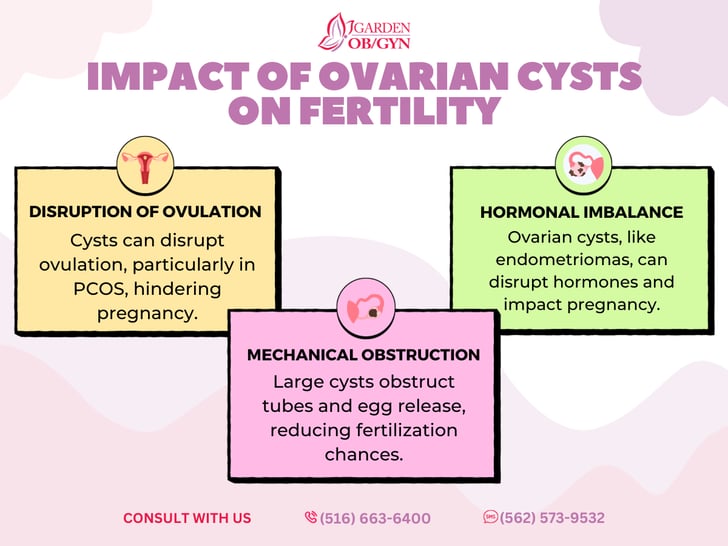Truths about Ovarian Cysts and Fertility
Ovarian cysts are common but vary in impact on fertility. PCOS can complicate, but many women with cysts can still conceive and have healthy pregnancies.

Ovarian cysts are a common gynecological concern that affects many women at some point in their lives. While the presence of ovarian cysts can raise concerns about fertility, it's essential to understand that not all cysts are created equal. Ovarian cysts can indeed impact fertility, especially when associated with conditions like Polycystic Ovary Syndrome (PCOS). However, the good news is that many women with ovarian cysts can still conceive and have healthy pregnancies. In this article, we will explore the relationship between ovarian cysts and fertility and shed light on the myths and realities surrounding this issue.
The Impact of Ovarian Cysts on Fertility
Ovarian cysts are fluid-filled sacs that develop on or within the ovaries. While most ovarian cysts are benign and resolve on their own, some can affect fertility. Here are some ways ovarian cysts may influence a woman's ability to conceive:
-
Disruption of Ovulation: Cysts can interfere with the regular ovulation process. For example, women with PCOS often have multiple small cysts on their ovaries, which can lead to irregular menstrual cycles and anovulation (lack of ovulation). This can make it challenging to get pregnant.
-
Mechanical Obstruction: Large cysts can physically obstruct the fallopian tubes or interfere with the release of eggs from the ovaries. This can hinder the journey of the egg to meet sperm, reducing the chances of fertilization.
-
Hormonal Imbalance: Certain types of ovarian cysts, like endometriomas, may lead to hormonal imbalances that affect the quality of the eggs and the uterine environment, making it harder to achieve a successful pregnancy.
The Reality of Conceiving with Ovarian Cysts
While ovarian cysts can present challenges to fertility, many women with ovarian cysts can still conceive and have healthy pregnancies. It's essential to recognize that not all cysts are detrimental to fertility, and effective management is possible:
-
Early Detection and Treatment: Regular gynecological check-ups and ultrasounds can help identify ovarian cysts at an early stage. Early detection allows for prompt treatment and minimizes potential fertility complications.
-
Medical Management: In many cases, cysts can be managed with medication or minimally invasive surgical procedures. This helps preserve the ovarian tissue and improve fertility prospects.
-
Assisted Reproductive Techniques: Women with ovarian cysts who struggle to conceive may explore assisted reproductive techniques such as in vitro fertilization (IVF) to increase their chances of pregnancy.
-
PCOS Management: For those with PCOS, lifestyle changes, such as weight management, exercise, and medications, can help regulate menstrual cycles and improve ovulation, increasing the likelihood of conceiving.
Ovarian cysts can indeed affect fertility, particularly when they are associated with conditions like PCOS. However, the key takeaway is that not all cysts are equal, and many women with ovarian cysts can still achieve their dream of becoming parents. Early detection, medical management, and lifestyle adjustments can help women overcome the challenges associated with ovarian cysts and enjoy healthy pregnancies. If you suspect you have ovarian cysts or are concerned about their impact on your fertility, consult a healthcare provider for a thorough evaluation and personalized guidance.
































